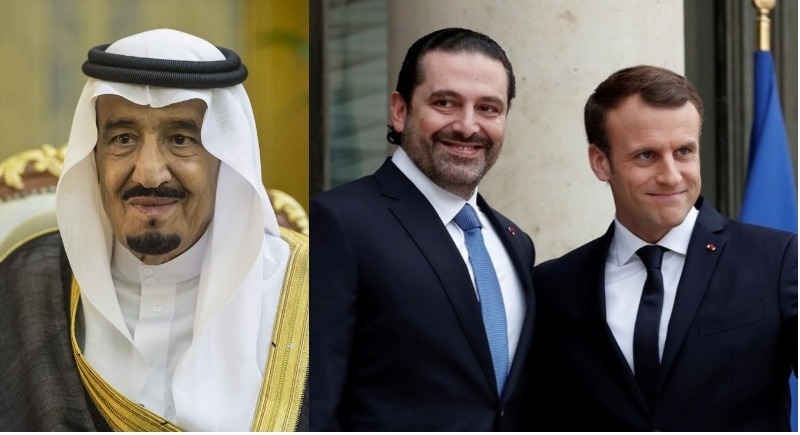West, Gulf gets involved verbally over political instability in Lebanon; blame game is on
Riyadh, May 29: While many countries in the Middle-East including Lebanon are facing worst political instability, the Gulf countries and West are getting involved in the blame game.

Saudi Arabia on Tuesday rejected French President Emmanuel Macron's allegations that the kingdom held Lebanese Prime Minister Saad al-Hariri captive in November last year. Notably, the Lebanese PM Saad al-Hariri in November last year unexpectedly resigned from his post during a trip to Saudi Arabia fearing his own assassination and accused Iran of meddling in the region.
The Saudi Foreign Ministry statement called Macron's comments untrue and further reiterated to continue its support in Lebanon's stability and security. "All the evidence confirms that what is pulling Lebanon and the region toward instability is Iran and its tools like the Hezbollah terrorist militia," the statement said.
Earlier, in a TV interview, French President Macron claimed credit for heading off a war in Lebanon, which was plunged into crisis after Hariri resigned while in Saudi Arabia, saying he feared assassination and criticizing the Saudis' regional rival Iran and its Lebanese ally Hezbollah.
The statement from French President comes nearly six months after the sources close to Hariri said that Saudi Arabia had concluded that PM Hariri had to resign because he was unwilling to confront Hezbollah. “After an international intervention, including by Macron, Hariri was able to leave the kingdom and eventually rescinded his resignation,” sources added.
Lebanese officials also accused the Saudis at the time of holding Hariri hostage. However, the authorities of Saudi Riyadh and Hariri denied the claims.
BACKGROUND:
Leaving a Lebanon into the middle of political instability, the Lebanese Prime Minister Saad al-Hariri in November last year unexpectedly resigned from his post during a trip to Saudi Arabia fearing his own assassination and accused Iran of meddling in the region.
On the other side, Iran had straight away dismissed the reports while accusing the United States and Saudi Arabia of orchestrating the resignation. Iranian Foreign Ministry official Hossein Sheikholeslam in a press statement had stated that Hariri's resignation was coordinated with the US President Donald Trump and Saudi Arabia's Mohammad bin Salman.
Hariri was appointed a prime minister in late 2016 and was a leader of a 30-member national unity cabinet that included Hezbollah. President Michel Aoun, who took office in October 2016, is a close ally of the Hezbollah group. He was elected after Hariri endorsed him for president, based on an agreement that he would make him as prime minister.
Under the Lebanese Constitution, the president must be a Maronite Christian, the prime minister a Sunni and the speaker of the Parliament a Shiite Muslim. Last year, Hariri met President Donald Trump at the White House. They spoke about economic issues and the pressure on Lebanon after an influx of 1.5 million displaced Syrians in the country. However, during the meet, Trump also warned about the danger of Hezbollah.
Importantly, Saudi Arabia and Iran are locked in a decades-old struggle for regional influence, which plays out in armed conflicts and political disputes including in Lebanon, Syria, Iraq and Yemen.